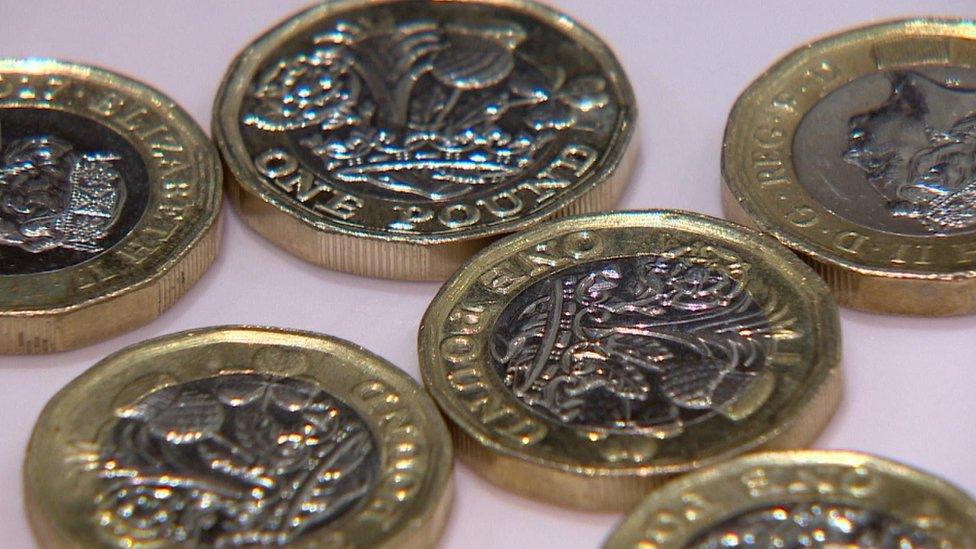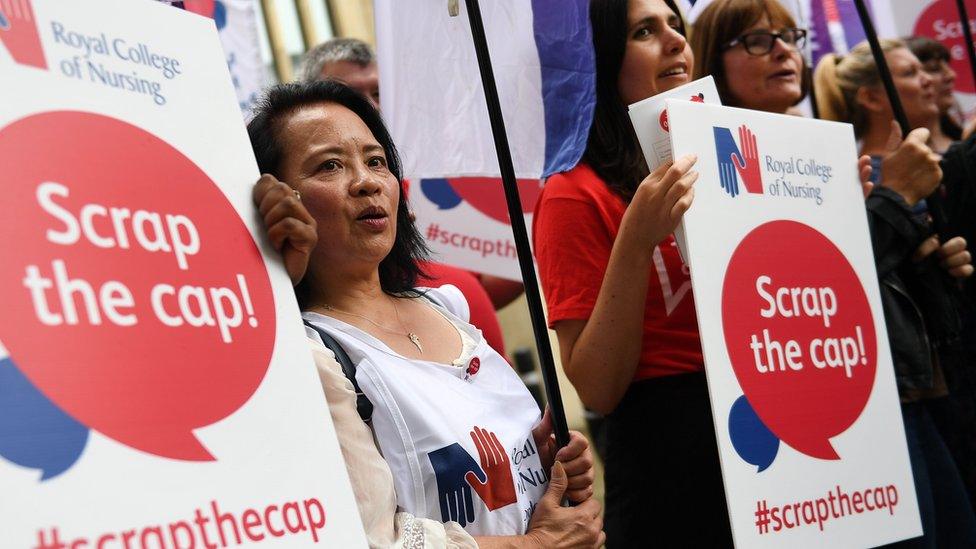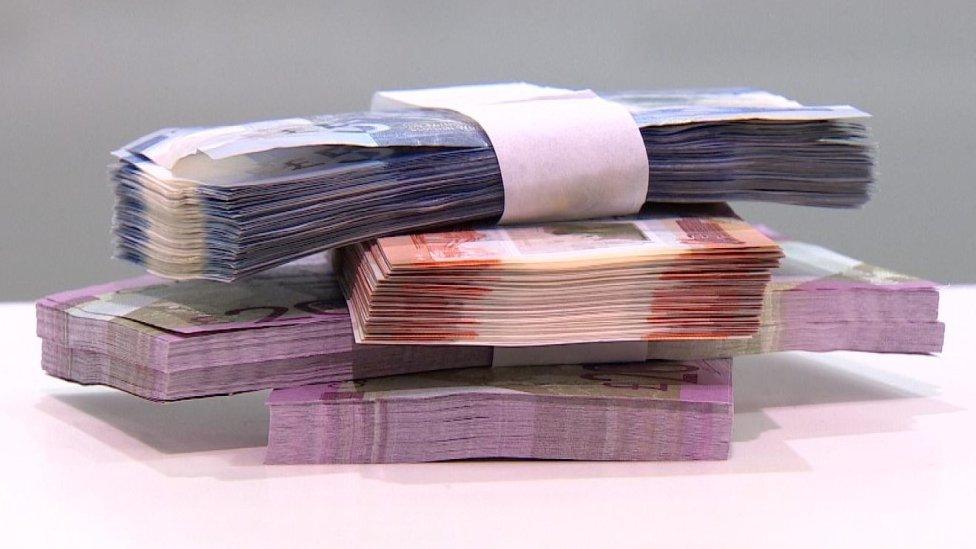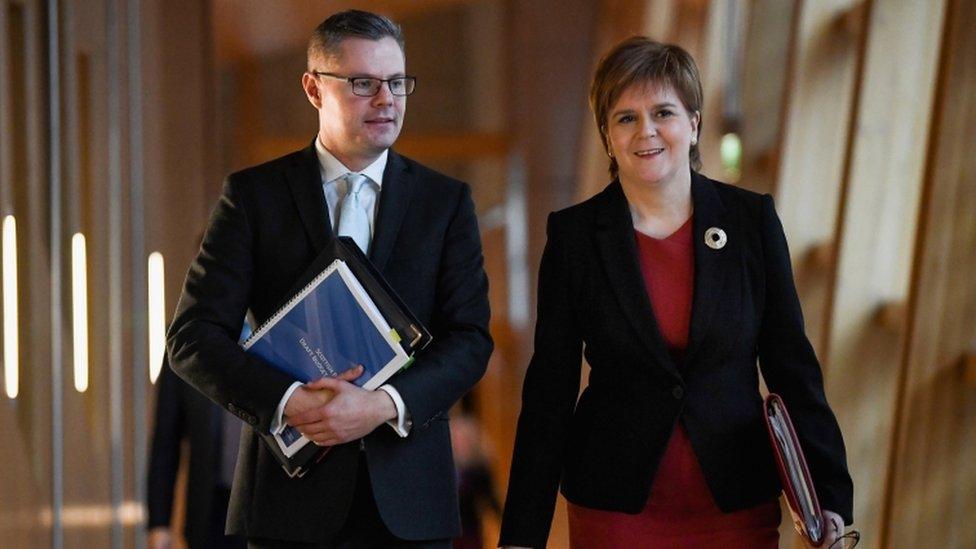Scotland's budget: what does it mean for me?
- Published

The changes to the income tax system in the Scottish budget mean almost everyone in the country will notice some difference in their lives. But what other big measures were in there, and exactly what will it mean for you?

Income tax
The most significant change is the move to a five-band income tax system.
Scotland currently has three income tax bands - a 20p basic rate, a 40p higher rate kicking in at £43,001 and a 45p additional rate for earnings over £150,000.
The budget redraws the system by adding a 19p "starter" rate and a 21p intermediate rate, while adding 1p to the higher and additional rates to create a five-band system.
The new starter rate, combined with the increase to the tax-free allowance, means many Scots will actually pay less than they do in the coming financial year than they do right now.
Overall, 70% of Scottish taxpayers will pay less, while 55% will pay less than they would if they lived elsewhere in the UK. That does, of course, mean 30% will pay more than they did last year - and 45% will pay more than they would if they lived south of the border.
There was originally an "anomaly" in the plans which saw some higher earners get a tax cut as a result of changes to the higher rate threshold. However this was ironed out as a result of the negotiations between the SNP and the Greens, raising an extra £55m.

Public sector pay

If you work in the public sector, there was some (reasonably) good news in the budget - the 1% pay cap is over.
How much your pay goes up will depend on how much you earn, though, as Mr Mackay complains his hands are tied by the Treasury.
Those earning £36,500 or less are guaranteed a 3% pay rise
Those earning more than £36,500 will see a 2% pay rise
Those earning more than £80,000 will see increases capped at £1,600
So those on the very highest salaries at councils won't be getting as much extra pay - a move Mr Mackay said "demonstrates our commitment to closing the gap between the lowest and highest paid".
One more bit of small print - this applies to workers in the NHS, police officers and firefighters, and teachers - but for council employees, the budget document stresses that "pay and other employment matters are delegated to local authorities".
Overall, the government says "75% of public sector workers, including NHS staff, will benefit from an inflationary pay rise".

Childcare and education

Successive Scottish government budgets have boosted the number of hours of free childcare, and this was no different.
By 2020, parents in Scotland will now be entitled to 1,140 hours of free childcare per year - so 30 hours a week - with Mr Mackay ploughing a further £243m towards this.
He has also targeted £59m of attainment funding at support for children and young people from the most deprived households, and put £88m of local government funding towards maintaining the pupil-teacher ratio.
For older learners, student tuition is still funded, while Mr Mackay pledged a "real terms increase" in funding for universities and colleges via the Scottish Funding Council.

First-time buyers

One of the few surprises in Philip Hammond's Autumn budget was a boost for first-time buyers, wiping out stamp duty for purchases up to £300,000.
Mr Mackay has sought to follow this lead, introducing a relief on the Scottish equivalent tax, Land and Buildings Transaction Tax (LBTT), up to £175,000 - up from the present threshold of £145,000.
Yes, that's still less than the UK figure - but so is the average property price north of the border, so Mr Mackay's figure should cover most properties in most areas of Scotland, excluding the very priciest (like Edinburgh).
He says 80% of first-time buyers in Scotland will pay no LBTT at all now, and all will see the tax they would have to pay reduced.

Small business owners

For those who own small businesses, the small business bonus scheme has been continued, lifting 100,000 business properties out of rates altogether.
Mr Mackay says the package for the coming year is worth £720m.
In addition, the finance secretary confirmed that the inflationary uplift in the poundage rate of business tax will be capped at the consumer-price rate of inflation (CPI), not the retail price index rate (RPI).
The CPI rate is traditionally lower, as it takes it a different range of products - meaning businesses are likely to see their rates increases capped at a lower level.
- Published14 December 2017

- Published14 December 2017
